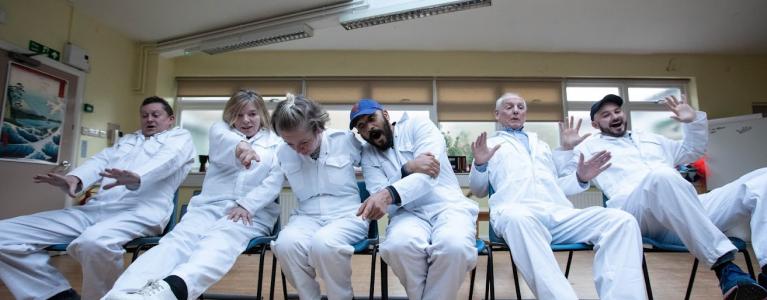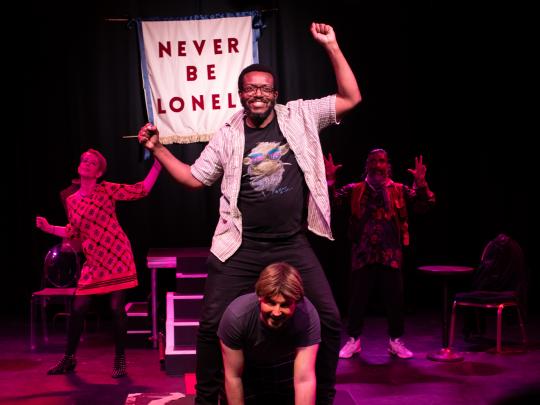
For Creative Health and Wellbeing week, we look at some great initiatives happening across London.
Creative health examines the effects of creativity on health, including how creativity, the arts, heritage, connection to nature and connection with others spark alterations to a person’s or a community’s neurological, biological, psychological and/or social health. Researcher and academic Tamsin Youngson explored various models used to deliver this in London. As part of her dissertation for the MASc Creative Health at UCL, she visited projects on the ground and shared her findings with us.
Outside Edge Theatre Company is the UK’s only theatre company and participatory arts charity focused on improving the lives of people affected by any form of addiction, including their families, carers, and champions. For over twenty years, Outside Edge has produced theatre productions relating to addiction, from substance misuse to problem gambling, and provided free drama workshops to help people make healthier choices and support their recovery maintenance.

Outside Edge embed cultural social prescribing in their way of working – participants find them through referral from GPs, social prescribers, charities, and word of mouth. However, they have struggled to engage with the most formal routes of social prescribing, such as social prescribing link workers. The company works across London. Tamsin observed some workshops and spoke to staff and participants about their experience – she shares some highlights of her research with us:
Importance of Play
There is no pressure to talk about addiction in the drama sessions; sometimes members spend large portions of their lives talking about recovery and Outside Edge provides a break from this – “this is about joy and playfulness, not tears”. Play at the organisation is embodied and encourages “imaginative responses from less intellectual, more instinctive spaces” and helps participants tell their stories.
Embracing the Unknown
Participants seemed to place little importance on who had referred them to the workshops – this suggests that signposting can be effective from anyone and does not rely on health professionals. Recruitment is aided by the niche nature of activities provided – a drama workshop for people affected by addiction. However, the uniqueness and specificity of this offer can also be a hindrance for participants who don’t have much to compare the organisation to and therefore may not know what to expect. There is an element of embracing the unknown, of providing people with the opportunity to try something safe but a little scary.
An Alternative Healthcare Provision
Gathering data from participants revealed adverse and ineffective experiences of healthcare. Many of the instances most adverse to health occurred in residential treatment centres, in hospital wards, prisons, and school; they involved neglect, over-medication, “loss and rejection and disappearance of professionals”, sectioning and imprisonment.
Ineffective healthcare tended to be experienced in GP buildings, out-patient hospital areas, social care departments and classrooms and included pressuring people to take pharmaceutical treatments, long waiting lists, inadequate signposting and classes that failed to teach.
Many of the participants believed that healthcare interventions would have been more effective and less damaging had they not been treated like ‘tick-box’ exercises. There was a perception that pharmaceutical interventions are provided more for the convenience of the staff than the health of the patient, and this precludes trust. Participants believed that trust requires honesty and time. Outside Edge and other creative health organisations are able to provide honesty and time, and creative social prescribing can be a life-changing tool for many Londoners. This, in part, is recognised by the most reliable source of funding for the organisation being from local authority Public Health departments, acknowledging the power of these alternative approaches.
The Mayor's Health Inequalities Strategy sets out his plans to tackle unfair differences in health to make London a healthier, fairer city. The Healthy Communities aim in the strategy - London’s diverse communities are healthy and thriving - commits to social prescribing becoming a routine part of community support across London.